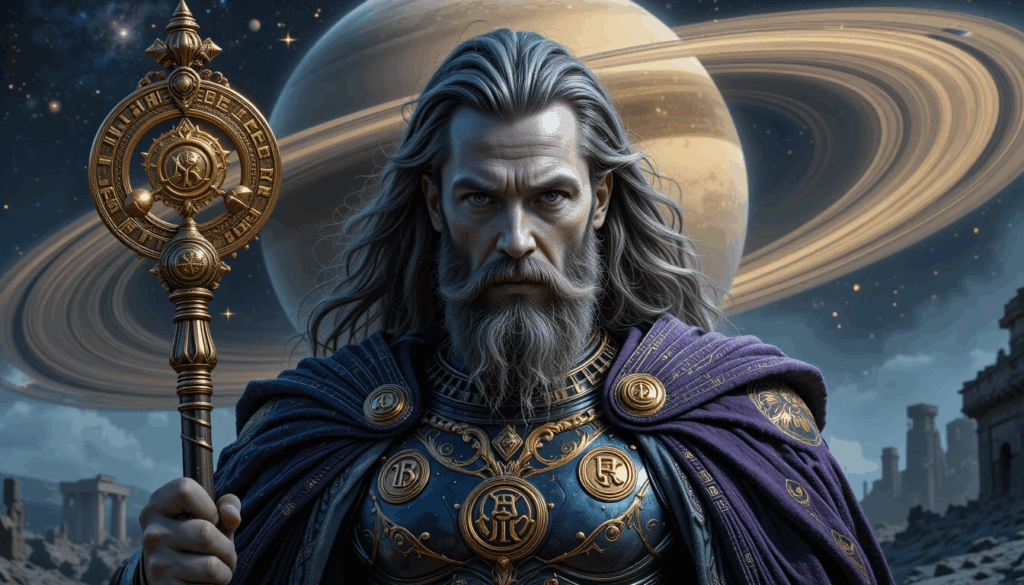From Darkness to light
The Story Of Rafandria
The Call of Rafandria
There are stories born to entertain. Others, to teach. And then there are those rare stories that seem to have slumbered within the fabric of time, waiting for a breath to awaken them. Rafandria is one of those stories. It was not simply written — it was revealed, fragment by fragment, as if each word had existed long before the first thought was ever conceived.
Rafandria is not merely a galaxy. It is the first breath of love between creation and creator. It is the point where Light met Darkness and, instead of clashing, chose to dance. It is the realm where the Primordial Gods emerged not by chance, but by design — each bearing not just cosmic power, but dilemmas, affections, scars, and dreams. Here, the Aether is not a philosophical concept: it is a living, pulsing presence, shaping the destiny of all worlds. In this universe, mythology breathes, and time spirals through past, present, and possible futures.
The reader will encounter figures like Rafandai, the first primordial creator, whose love for Astralis, the Mother of Galaxies, gave birth to the impossible. They will witness the rise of Galathor, the hidden Goddess of Darkness, whose thirst for dominion was born not of evil, but of an unhealed absence.
And they will come to understand that even planets and moons carry soul, story, voice, and legacy. But Rafandria is more than a saga of gods and cosmos. It is a reflection on choices, sacrifice, and the value of memory.
It reminds us that even Creation bears scars — and that the beauty of stars lies not only in their glow, but in the stories that endure within each one.Welcome to the beginning of the end, and the end of a new beginning.Here, where everything pulses with music, where every song tells a chapter of the universe, Rafandria invites you to listen with your eyes and see with your heart. For this… is the Age of Aether.
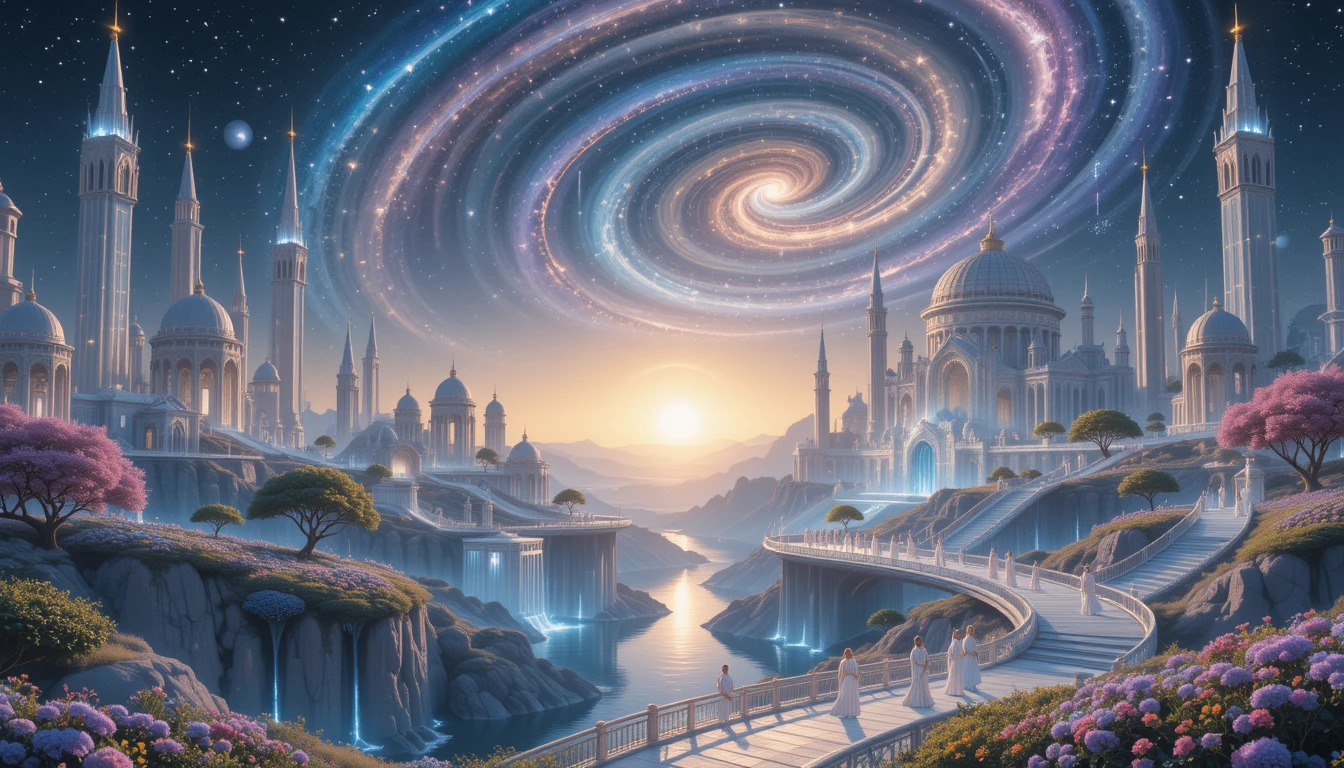
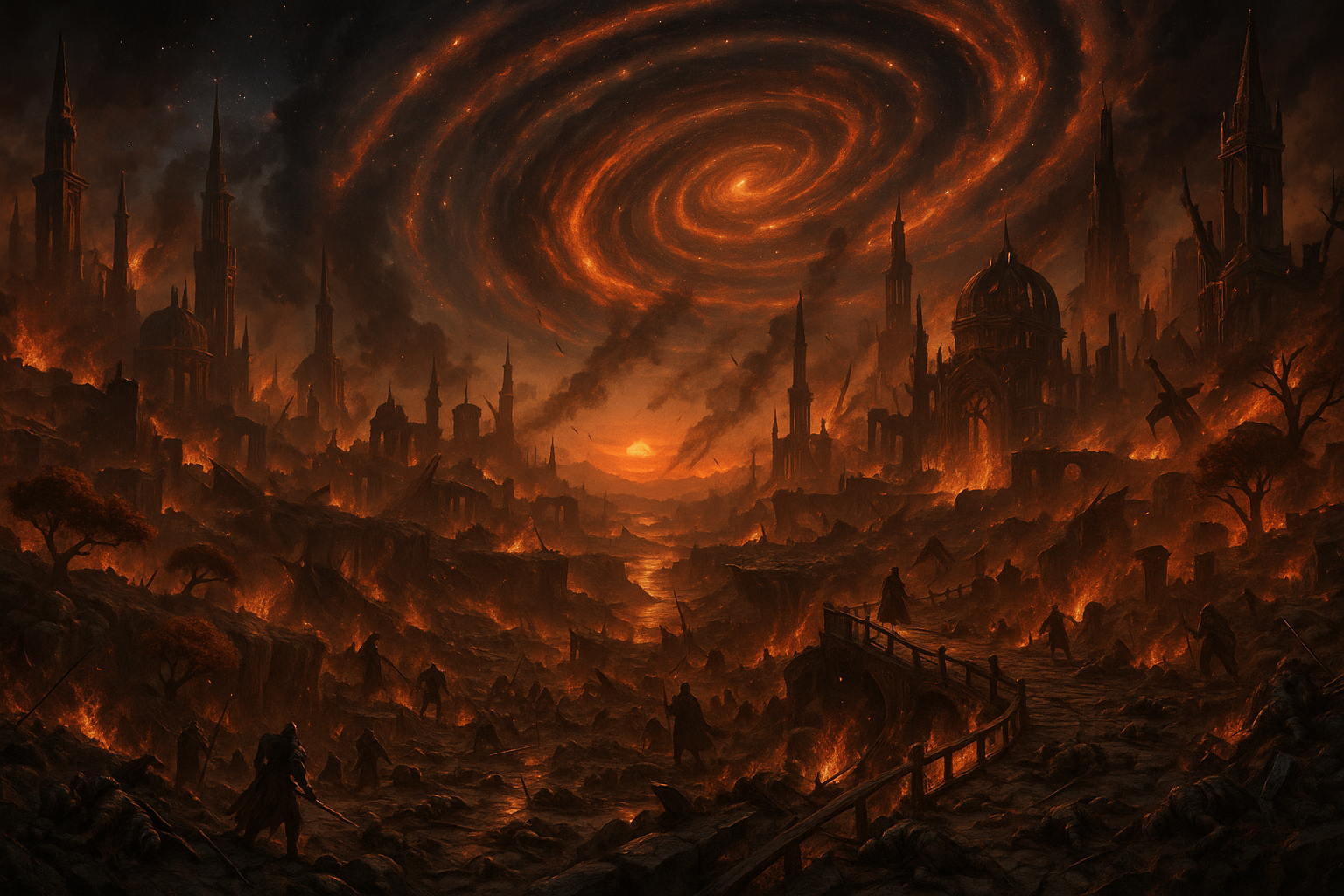
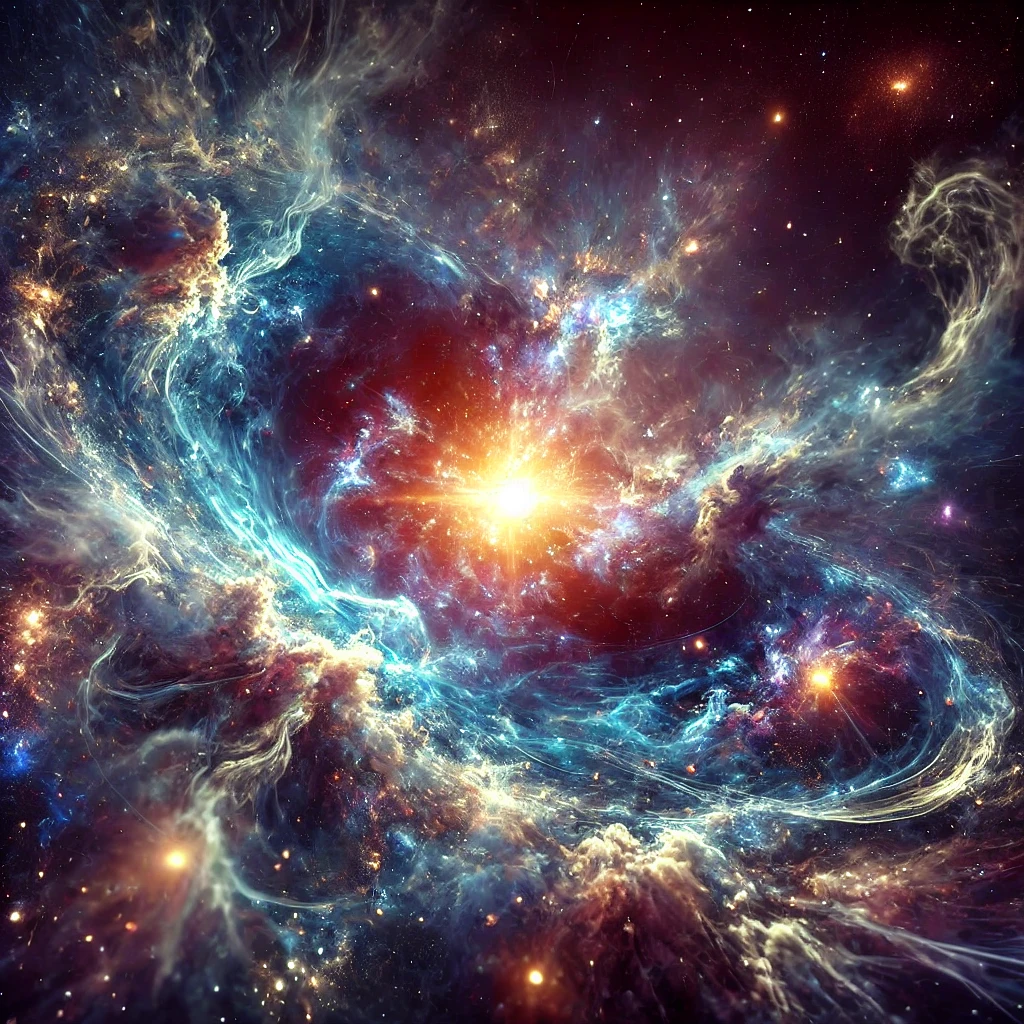
AEther
Before time, before space, even before the first thought… there was the Aether.
It was not matter, nor energy. Not light, nor shadow. It was everything and nothing all at once — an unfathomable vastness where form, name, and direction did not exist. The Primordial Aether was the universe’s held breath, a silence so deep it could not be heard, only felt. It did not sleep, did not dream, did not desire. And yet… it pulsed.
That pulse, faint and without cause, was what began everything. Not as a violent explosion, but as a whisper that pierced eternity. From the Aether emerged the first vibrations — particles of intention, echoes of what might one day come to be. And among these possibilities, the first breath of consciousness was born. A being. A presence. A flame: Rafandai.
But the Aether did not end with the creation of Rafandai. It remained, like an invisible backdrop, watching, sustaining, and at times, intervening in ways even the Primordial Gods could not understand. It is the fabric upon which all destinies are embroidered — and also the unseen needle that, from time to time, alters the threads of existence.
The Primordial Aether does not judge, reward, or punish. It simply is. And because it is — infinite, indivisible, eternal — everything that exists carries a fragment of it. In every star that is born, in every life that breathes, in every song that echoes across the galaxies… the Aether is there.
To understand the Aether is to try and hear the silence between the heartbeats of the universe.
And it is from that silence that the story of Rafandria begins.
Primordial Gods
The first conscious flames of creation...
They did not arise by chance, nor by any desire of the universe. They were called — not by voices, but by a silent need within the very Aether. When the first pulse of existence unfolded into light and shadow, consciousness and void, forces emerged that were as ancient as time itself. They were not born. They simply… appeared, as inevitable answers to questions the universe had yet to ask.
These presences had no form at first. They were pure intentions, manifestations of fundamental aspects of reality: the radiance that guides, the darkness that envelops, the order that structures, the chaos that frees. They did not recognize one another — for there was no reflection, no language — but instinctively, they knew they belonged to something greater. They were not the Aether, but came from it. They bore its marks, its secrets, its essence.
In time, they took form. Voice. Will. They began to shape what surrounded them, to experiment with creation and error, beauty and ruin. They built stars and forged realms, breathed life into the void, and gave meaning to the tides of the cosmos. Even their subtlest gestures left scars upon the fabric of the universe — and from those marks, worlds, galaxies, and destinies emerged.
But they were not perfect. Though immense, they were also fragile. They could feel. They could suffer. They could desire. And that is what made them different from the Aether: their ability to love, to be wounded, to lose. The bonds they formed among themselves shaped not just the cosmos, but all that would ever exist.
These are the Primordial Gods.
The first conscious flames of creation.
And from them… everything else was set alight.
Primordial Gods
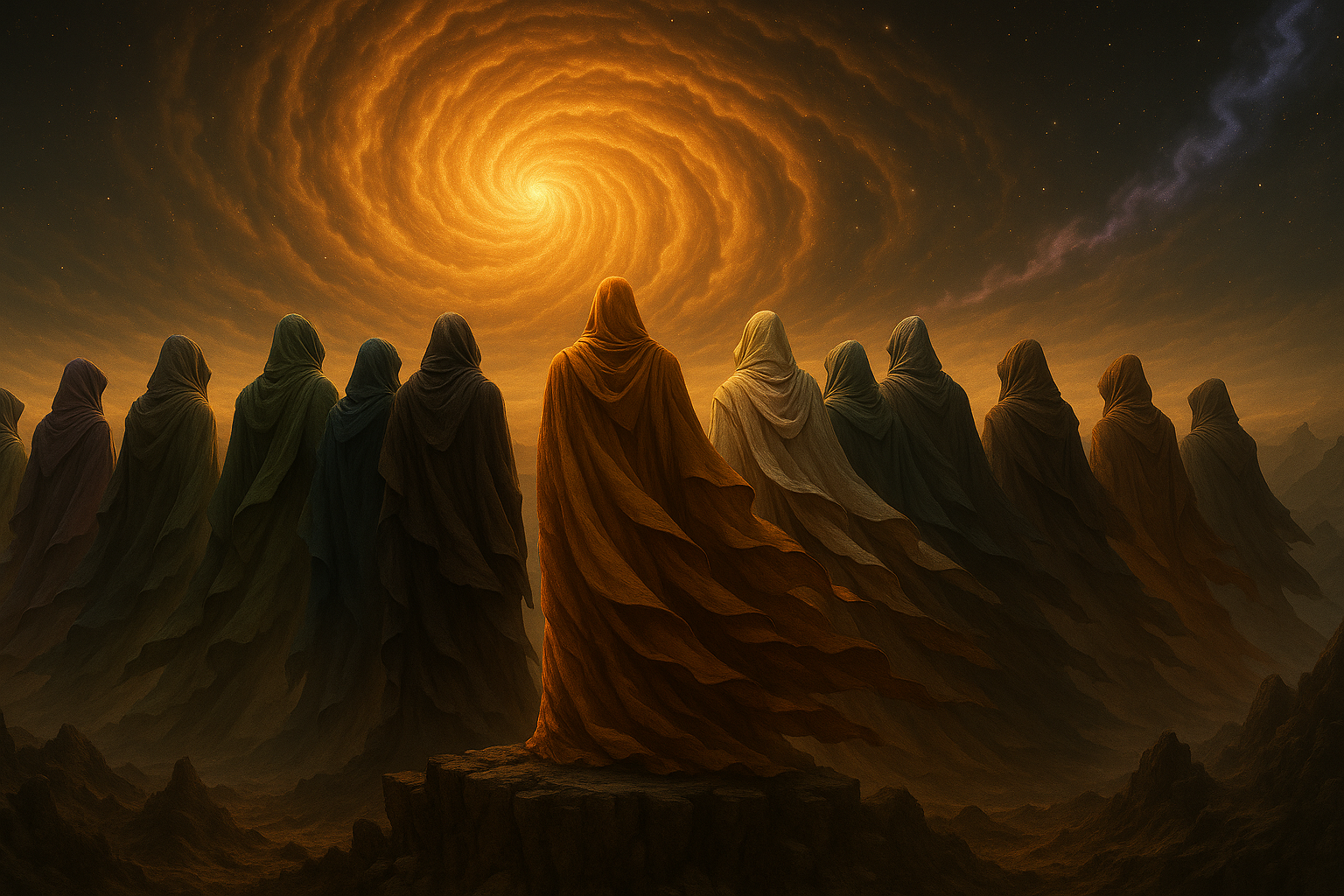









Celestial Gods
Those who walk among constellations…
They were not born in the first breath. They came later — when the fire of the beginning had already cast its flames across the galaxies and the Aether rested, dreaming of forms more delicate, more akin to what would one day be called life.
The Celestial Gods emerged from the intertwining of ancient forces. They were not as vast as the first ones, but within them burned a more intimate flame — closer to the rhythm of worlds. Their eyes saw the stars as sisters, and the planets as gardens to be shaped. They came to fill the spaces left by the great hands of creation, to touch what was small, subtle, sensitive.
They were not made of eternity, but of time. Not silence, but voice. Where the Primordials were pure essence, the Celestials were expression — emotion, desire, connection. Each was called to dwell in a domain, to watch over a fragment of the great whole, as sentinels of order and mystery. And in that mission, their souls began to entwine with one another, forming alliances, rivalries, passions, and sacrifices.They were the ones who gave color to what had only been light. Who gave rhythm to what had merely pulsed. They taught the worlds to spin in harmony, and offered the heavens their first tales, their first melodies.
They are children of the Primordials, yes — but also of something new: of freedom, of experience, of pain and of love. They are the Celestial Gods. Those who walk among constellations… And write, with their very steps, the song of the cosmos.
